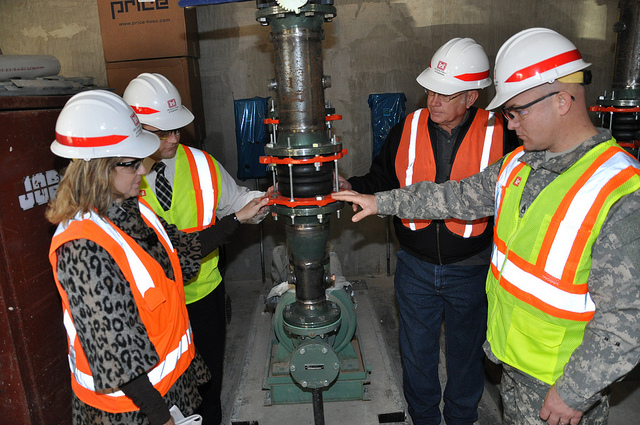Been there, done that, got the t-shirt. How much experience do you need to dabble in someone else’s job?
May 31, 2015
How much do you need to know about someone else’s job to have a say in it? Do you have to have done the job yourself to know whether they’re doing it properly? Common sense would suggest not – you don’t have to be a trained chef to recognise a badly cooked meal, for example. Yet a lot of people, particularly highly technical people, like engineers or IT professionals, seem to take umbrage at anyone who doesn’t share their expertise having any involvement in their jobs at all. In this blog I’m exploring how much you need to know to be effective in four different types of ‘dabbling’ in other people’s jobs: selecting, managing, coaching and mentoring.
Selecting people for jobs
Who’s to say if someone is right for a job? Do you have to be an expert to judge an expert? Well yes and no. It takes someone who really understands the subject to gauge candidates’ technical knowledge, understanding of the industry or level of professional skill. But that’s only half the story. There are so many other things that make people successful or unsuccessful in their roles: interpersonal skills, time management, resilience, influence, management skills and so on.
But that’s only half the story. There are so many other things that make people successful or unsuccessful in their roles: interpersonal skills, time management, resilience, influence, management skills and so on.
Often experts are least equipped to assess these other aspects as they get too absorbed in the technical skills or industry knowledge. As a business psychologist, I assess people all the time for a wide variety of senior roles. People ask me, sceptically (if they’re being polite, sneeringly if they’re not) “But what do you know about aeronautical engineering/ school catering / accountancy?”. And the answer is, technically, very little. But I know how to find out how people do their jobs. Is this the office joker or a person who keeps everything very business-like? Someone full of ideas but a bit lax on implementation or a person who doggedly pursues something to the bitter end even if it’s no longer relevant? Mr Fastidious who prepares a 90-page document and wonders why it’s not getting the air time it deserves at a board meeting or Mr Schmoozer whose behind-the-scenes manoeuvrings would make Peter Mandelson blush? Or none of these extremes?
You don’t need to understand the detail of someone’s job to find out how they interact with others, what their leadership style is like, whether they’re well organised and so on. In fact, I’d say you need two experts to select someone for a job (especially a senior job) – an expert in the job who can determine whether someone has got the specialist knowledge and skills required and an expert in people assessment, who can find out the rest.
Management
So what about managing someone? Do you have to have done the job yourself? What about that old adage “I never ask someone to do something I wouldn’t do myself”? Well that works up to a point but if everyone stuck to it, no one would get to be MD. If you rise to the top through, say, the Sales department, eventually you’re going to have to manage IT, finance and a whole host of other disciplines you have little knowledge of. Sooner or later you’re going to have to ask people to do things you can’t do yourself.
You need to understand where someone’s job fits in to the overall scheme of things and have an idea, at least at a high level, of what ‘good performance’ looks like.  You need enough understanding to set objectives and hold people to account for them, but that doesn’t mean you need to understand exactly how they do their jobs. So if you agree with an IT manager that a new system will take six months to develop, you need to set some milestones along the way and then track progress against them. You probably don’t need to know which programming language it’s being written in.
You need enough understanding to set objectives and hold people to account for them, but that doesn’t mean you need to understand exactly how they do their jobs. So if you agree with an IT manager that a new system will take six months to develop, you need to set some milestones along the way and then track progress against them. You probably don’t need to know which programming language it’s being written in.
Coaching
Coaching is all about getting people to explore issues and come up with their own solutions, so it may actually be an advantage not to be an expert in the job. If you’ve been there and done that yourself, then there’s a temptation to put forward your own solutions. In theory, you could coach someone without having a clue what they were talking about, simply by providing a sounding board and asking questions such as “How else could you approach this?” and “What are your options here?”.
That’s a bit purist for me. I like to be able to help clients review their situation from perspectives they may not have considered, so it helps if I understand what they’re talking about, at least on an overview level. But I can do that without having been in their situation and, generally, without having coached anyone in that situation before. It’s more about having a general overview of what’s involved in working at a senior level in an organisation – and then listening well.
Mentoring
Mentoring differs from coaching in that it involves more advice giving. A mentor is usually an older, wiser person who really has been there, done that and got the t-shirt. The question is, ‘Which t-shirt?’. People don’t necessarily need a mentor who has done their specific job. Take Jenny*, for example, a former coaching client of mine, who was Head of HR in a medium-sized business. Jenny didn’t need anyone to advise her on how to do her job; what she struggled with was influence. Her previous role had been in a local authority and she was used to working through fairly formal channels. She didn’t know how to get her ideas accepted in a boardroom where the power dynamics weren’t clear.
The question is, ‘Which t-shirt?’. People don’t necessarily need a mentor who has done their specific job. Take Jenny*, for example, a former coaching client of mine, who was Head of HR in a medium-sized business. Jenny didn’t need anyone to advise her on how to do her job; what she struggled with was influence. Her previous role had been in a local authority and she was used to working through fairly formal channels. She didn’t know how to get her ideas accepted in a boardroom where the power dynamics weren’t clear.
While I could help her explore the situation, identify options and work out ways her inter-personal style was helping or hindering, she also needed a mentor who could explain ‘how things really work around here’. She used Peter*, the non-executive Chairman, a man with no HR experience but real expertise in getting things done on boards in general and her board in particular. So a mentor has to have experience, but you need to be really clear about what sort of experience you’re looking for. If Jenny had needed advice on how to align HR to the overall business strategy, Peter would have been of little use to her. She’d have need mentoring from an experienced HR Director and would have had to look outside the organisation.
*not their real names, obviously
In summary
So do you need to have been there, done that and got the t-shirt?
• Assessment – probably yes for technical skills, no for everything else
• Management – no but you need to understand what the t-shirt should look like
• Coaching – no
• Mentoring – yes, but pick your t-shirt carefully
Next month, I want to look at those wise old owls who do a bit of all of these things – non-exec directors. What do they need to know? I’d be interested to hear from any NEDs who have a view on that: caroline@carolinegourlay.co.uk
Photo credits
t shirts : Kristina D. C. Hoeppner
Engineers: US Army Corps of Engineers
Manager: FTTUB
Mentor: © Bg_knight | Dreamstime Stock Photos &Stock Free Images





